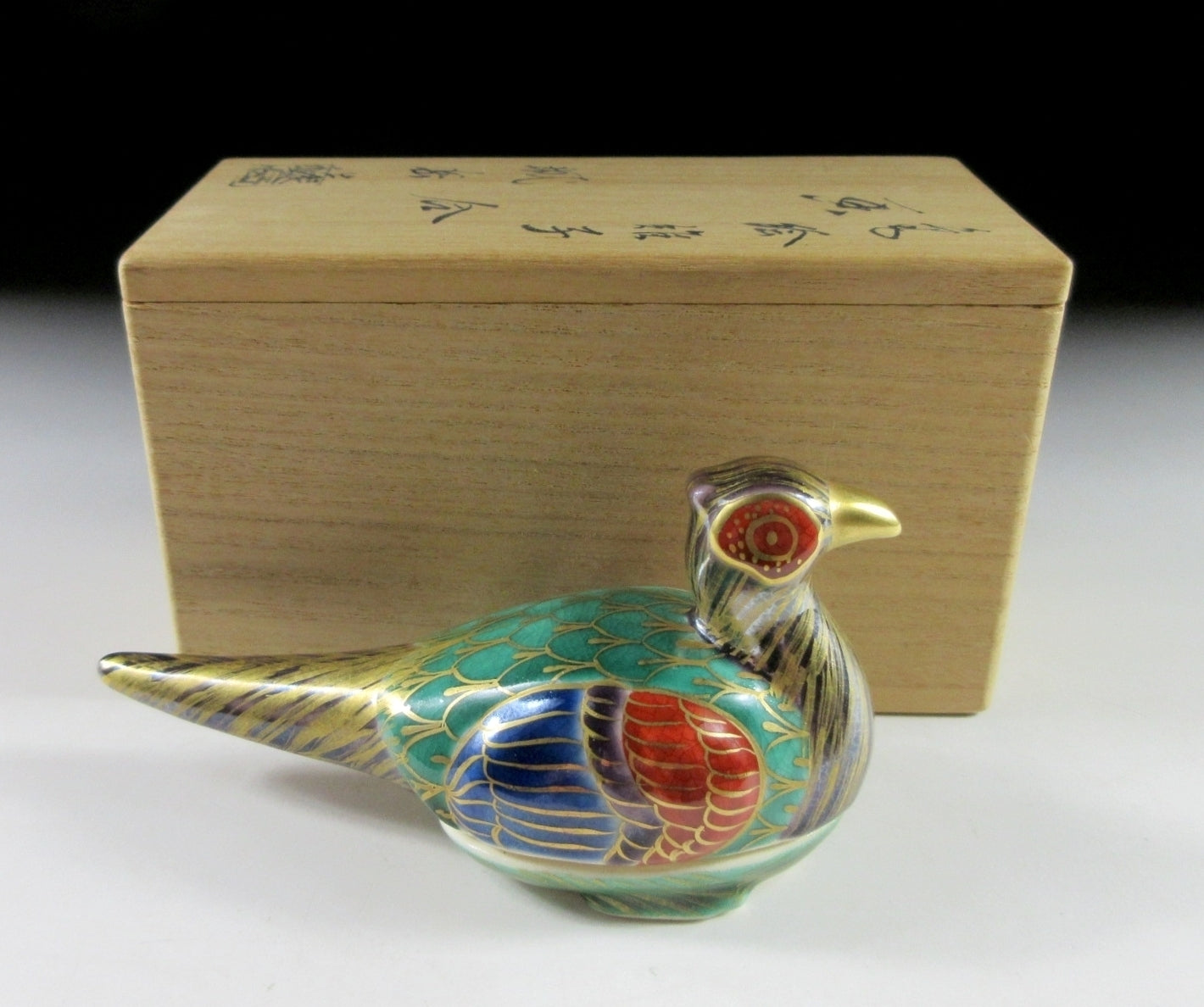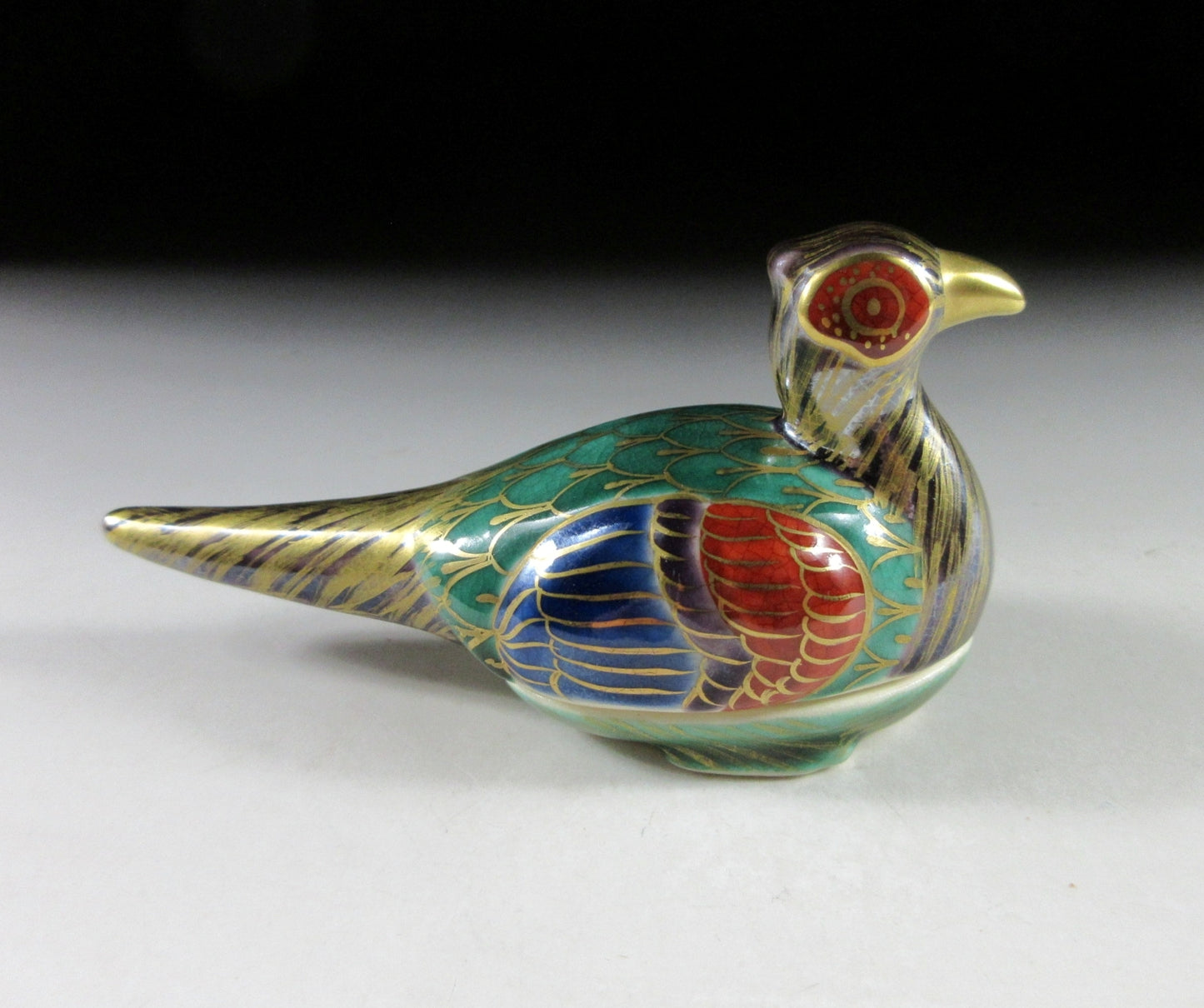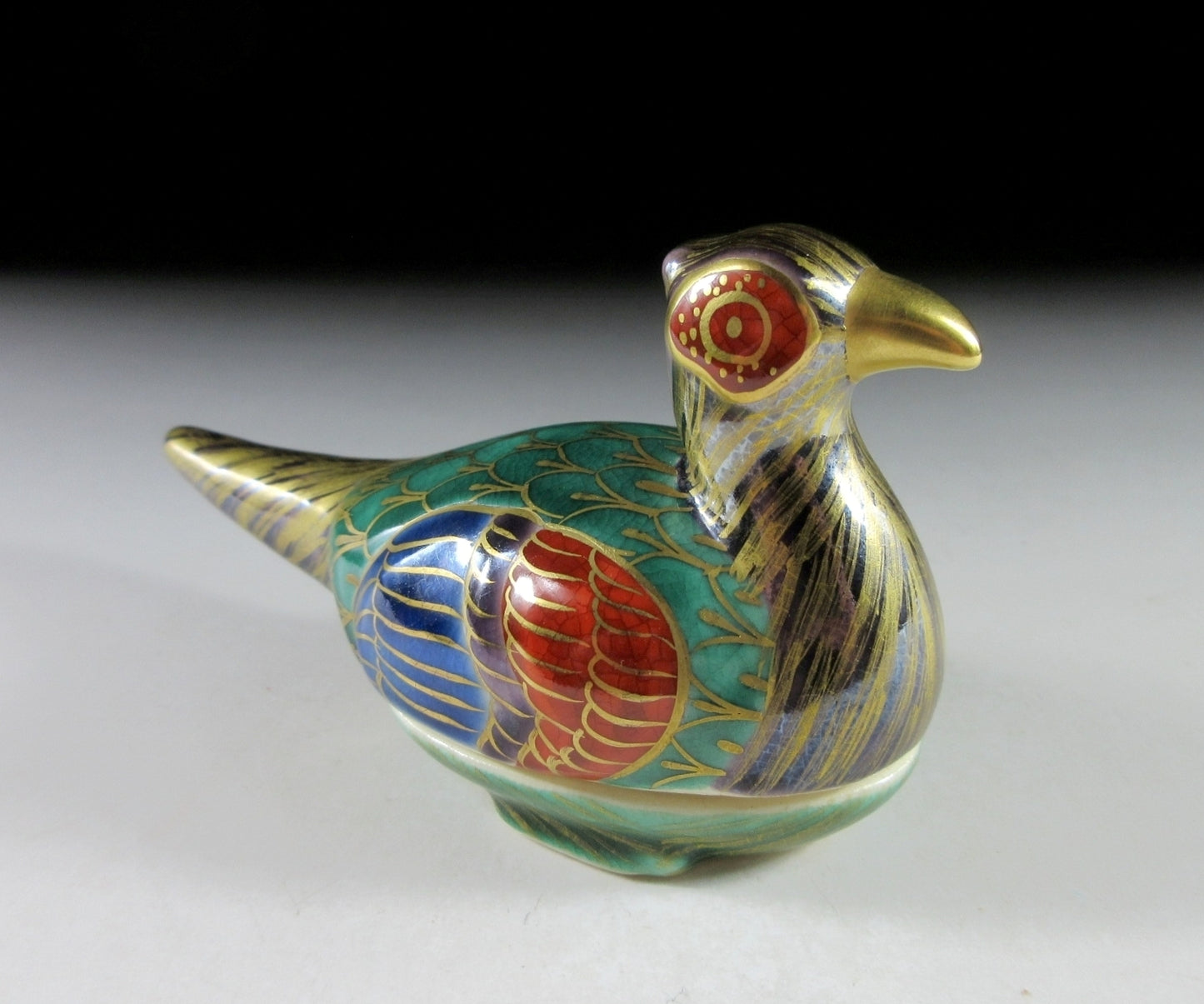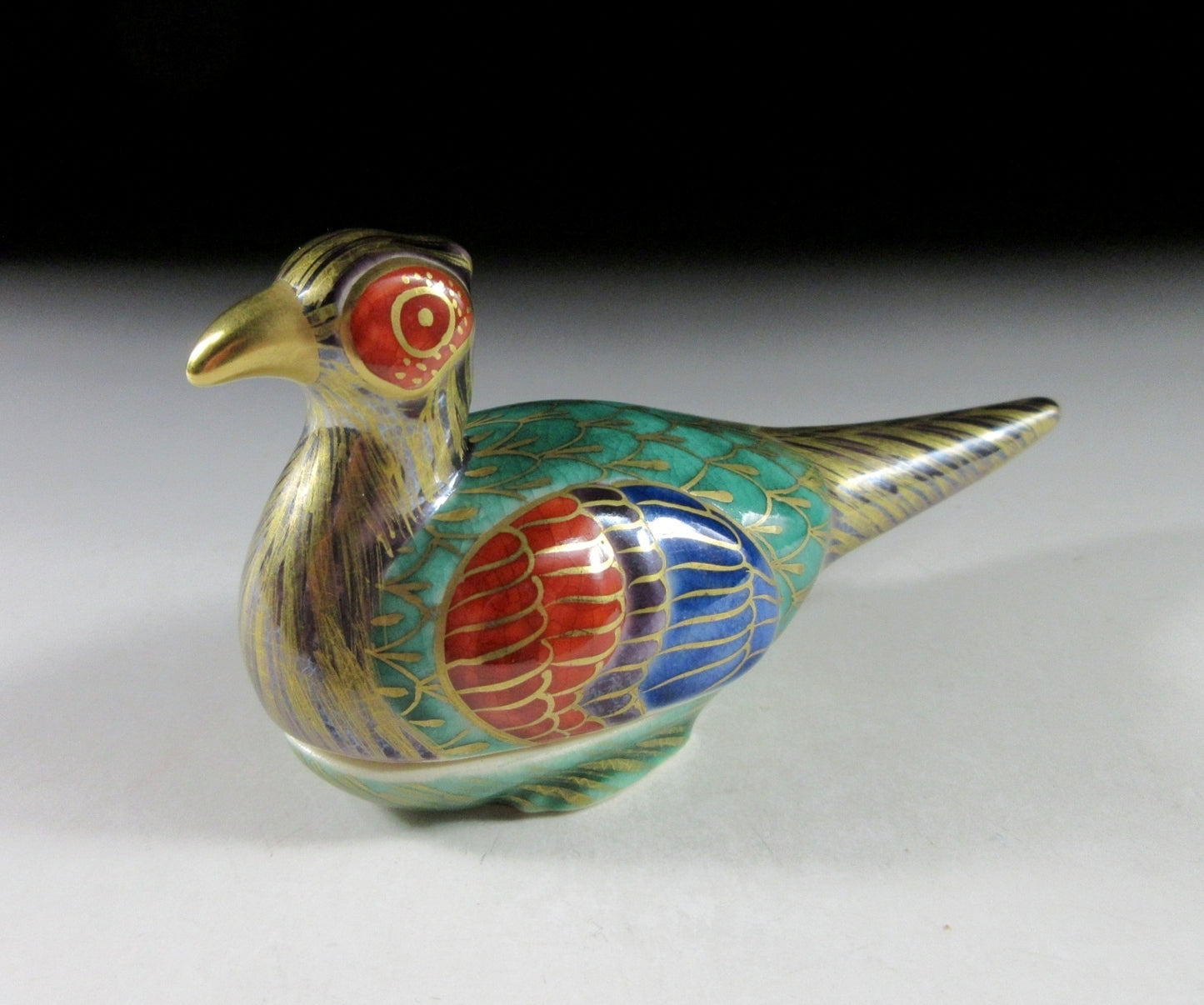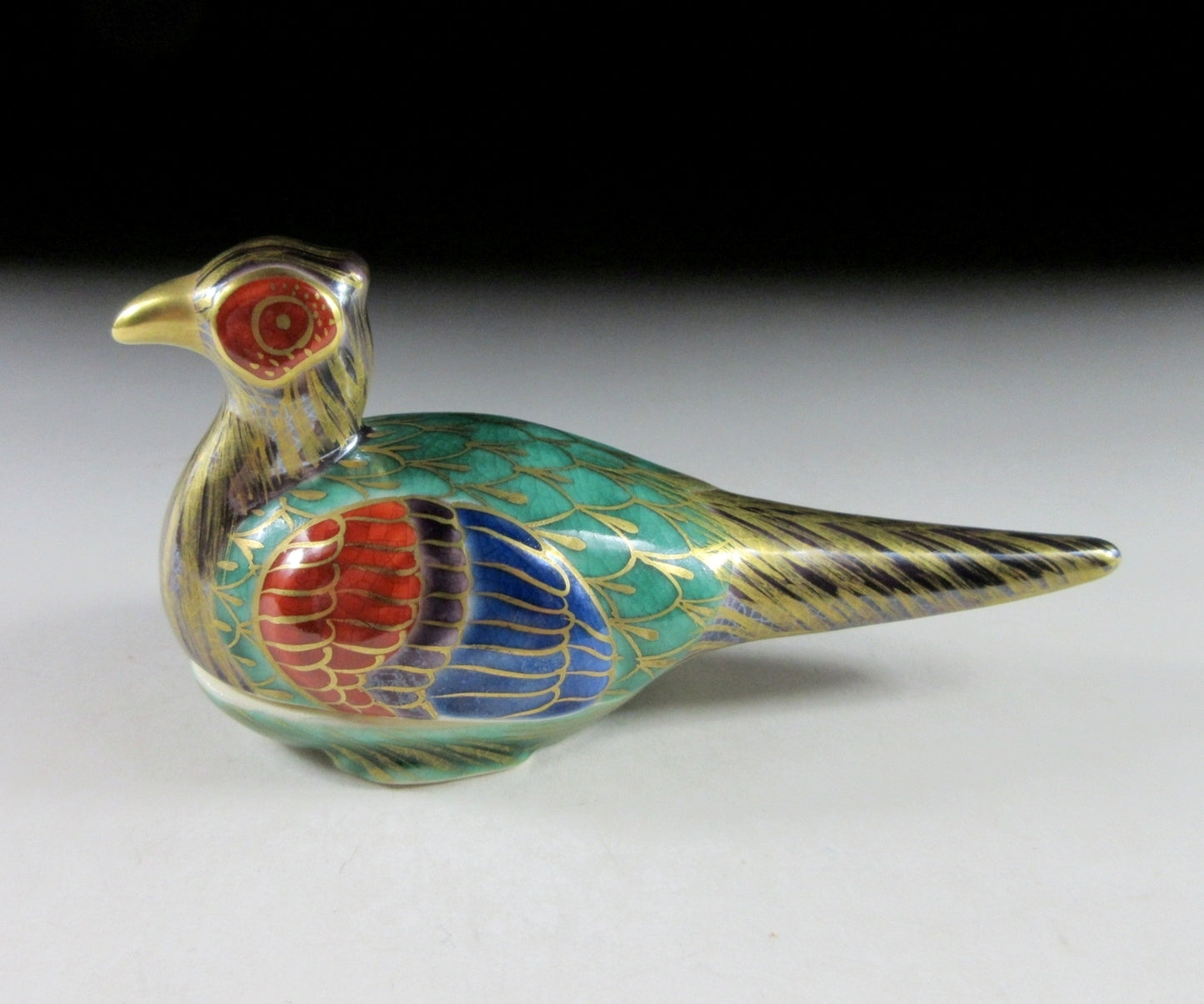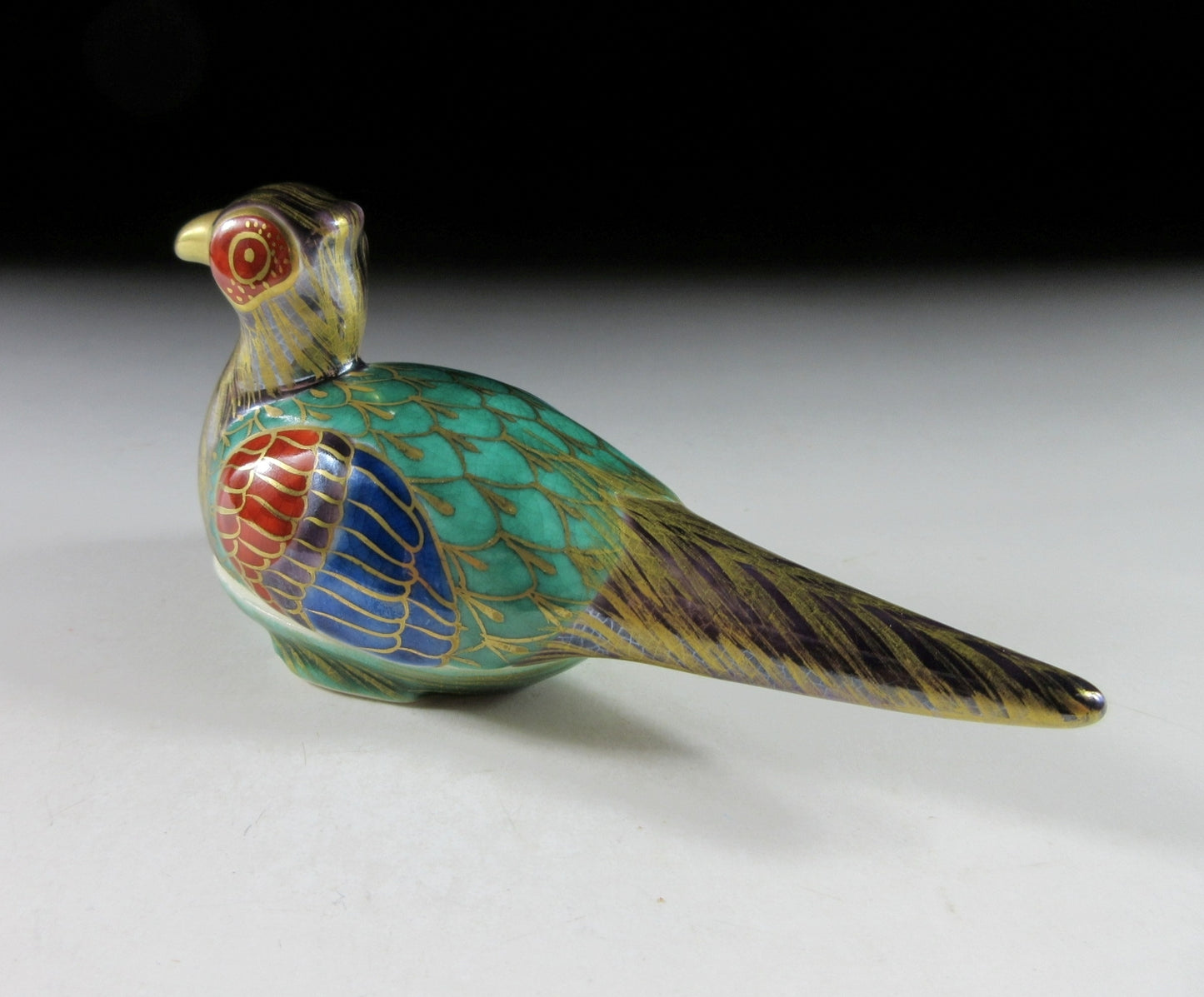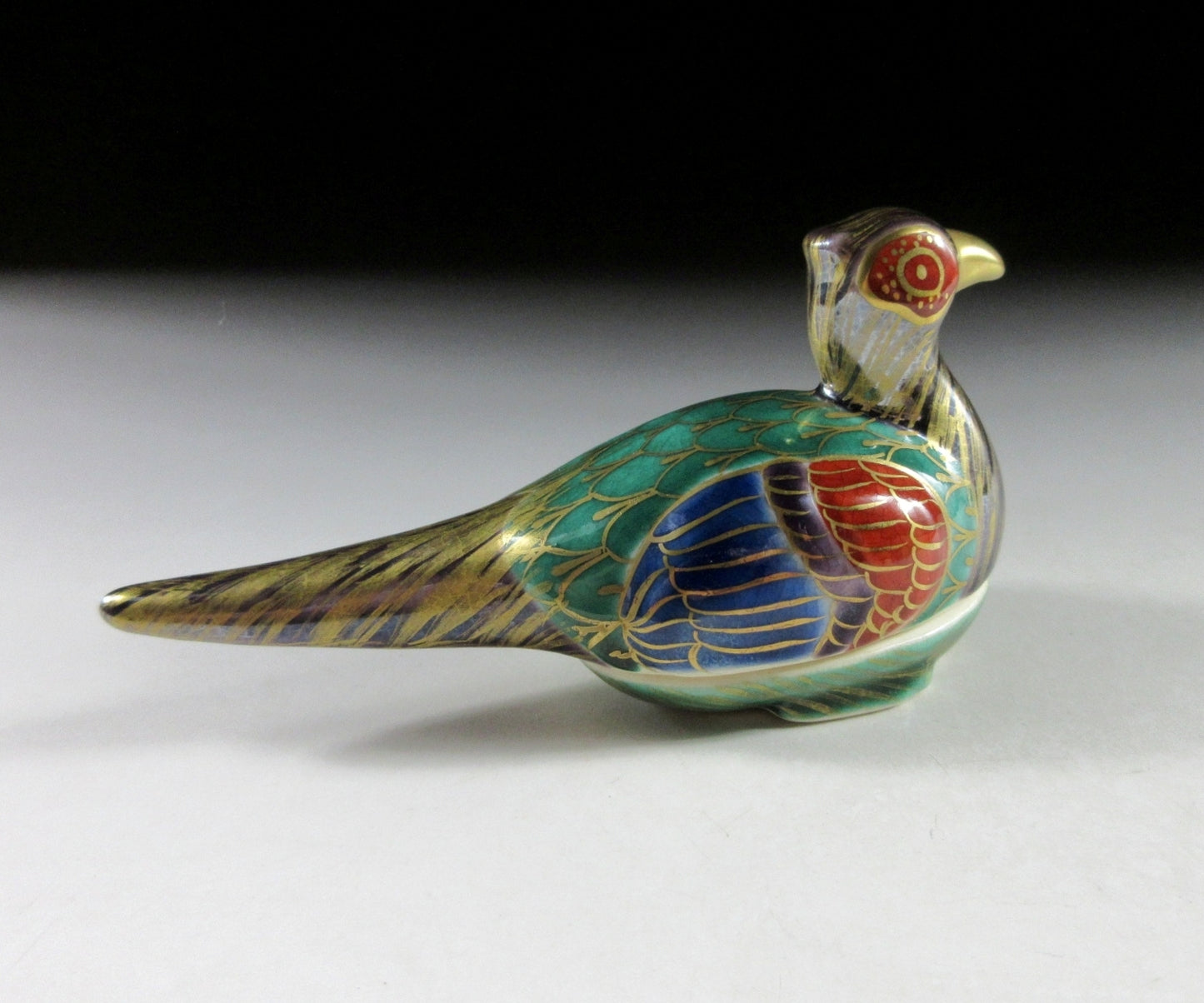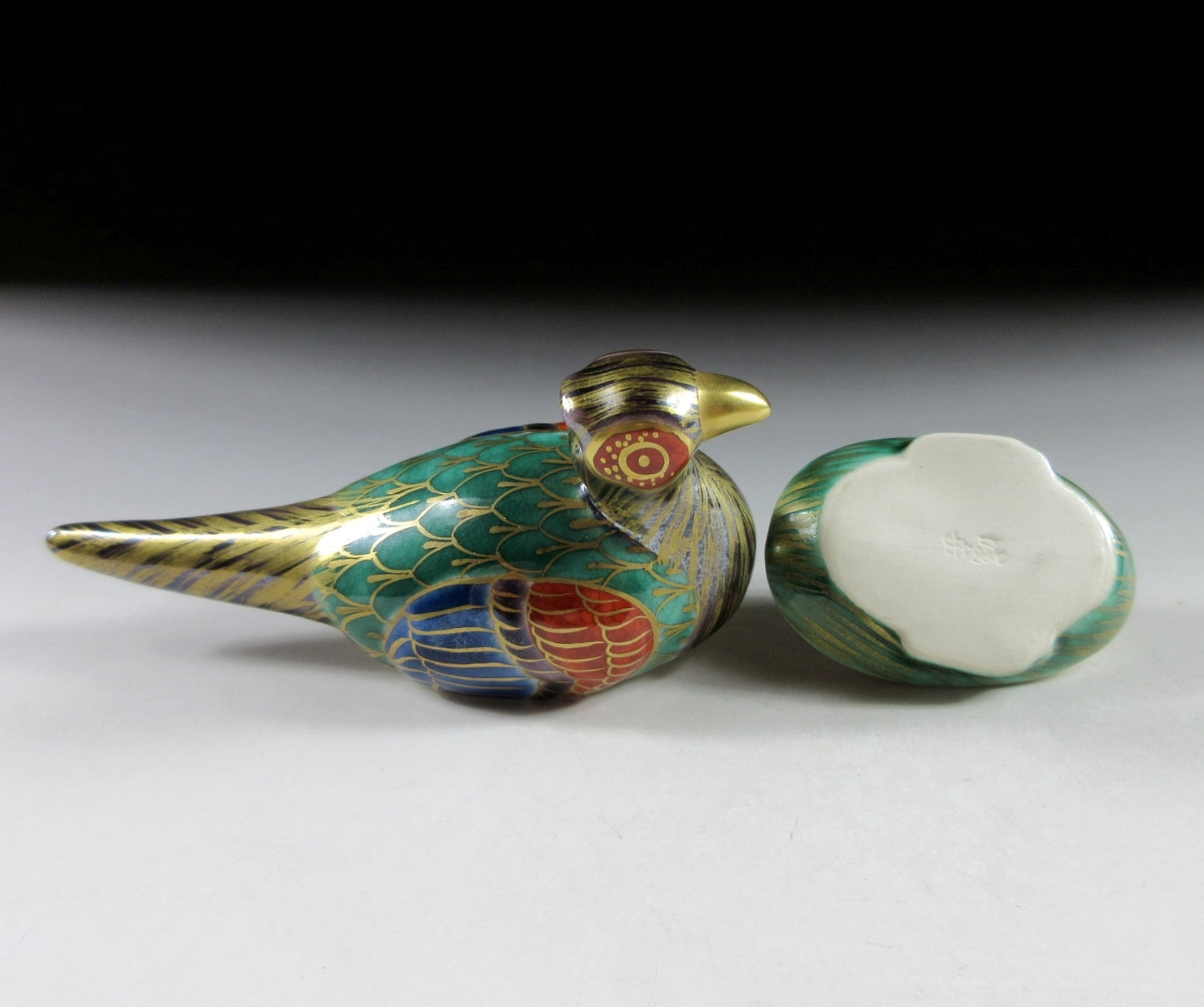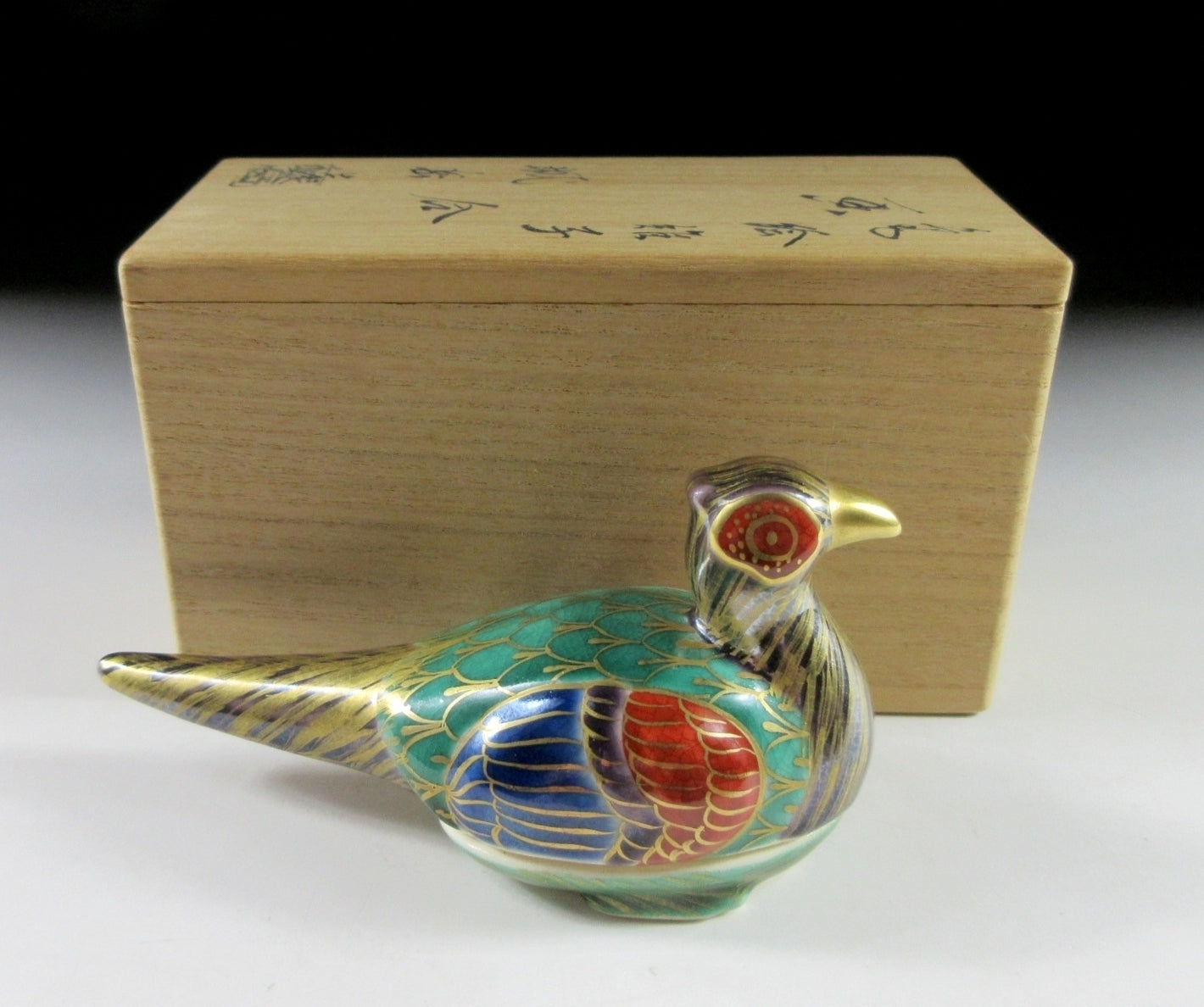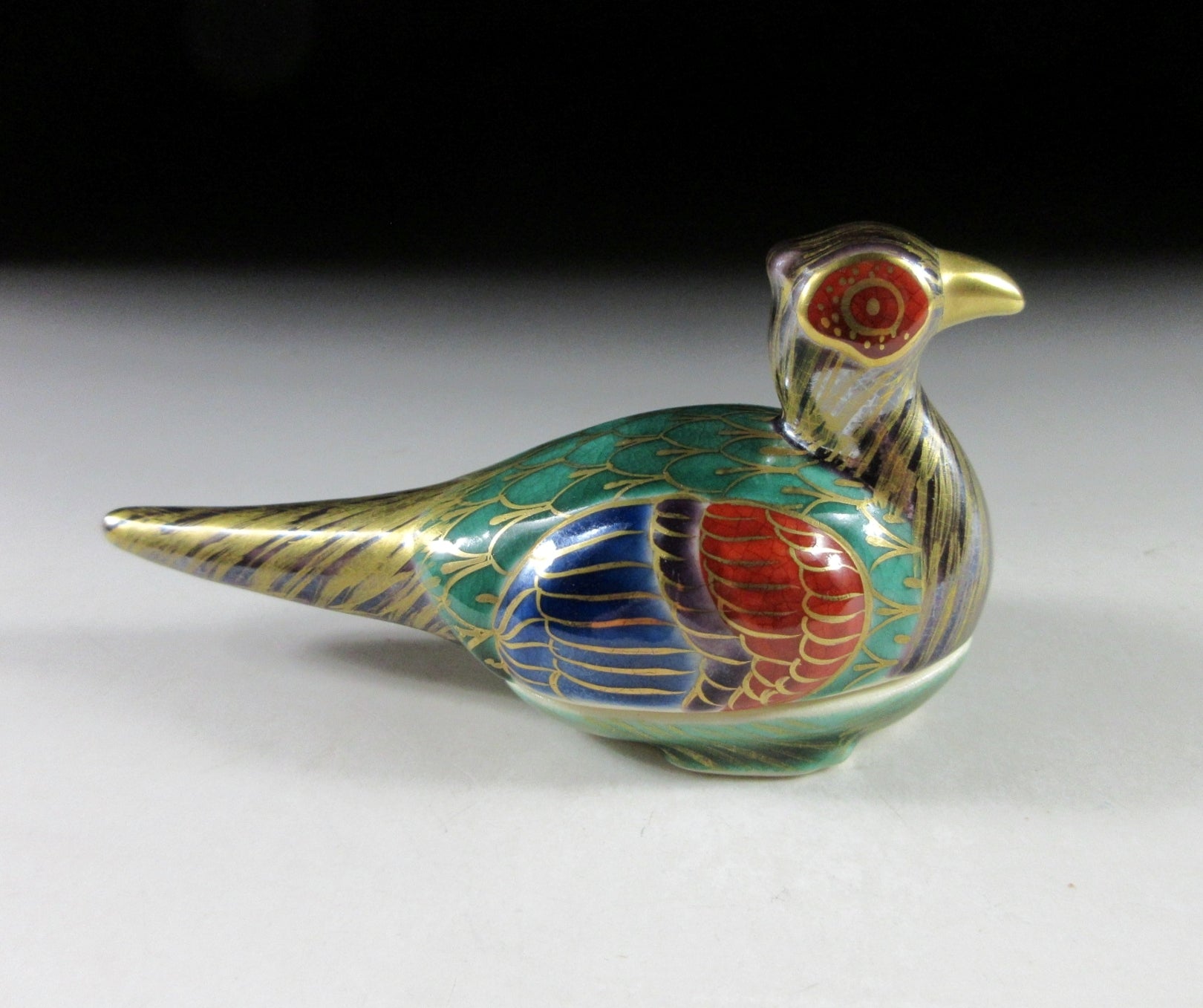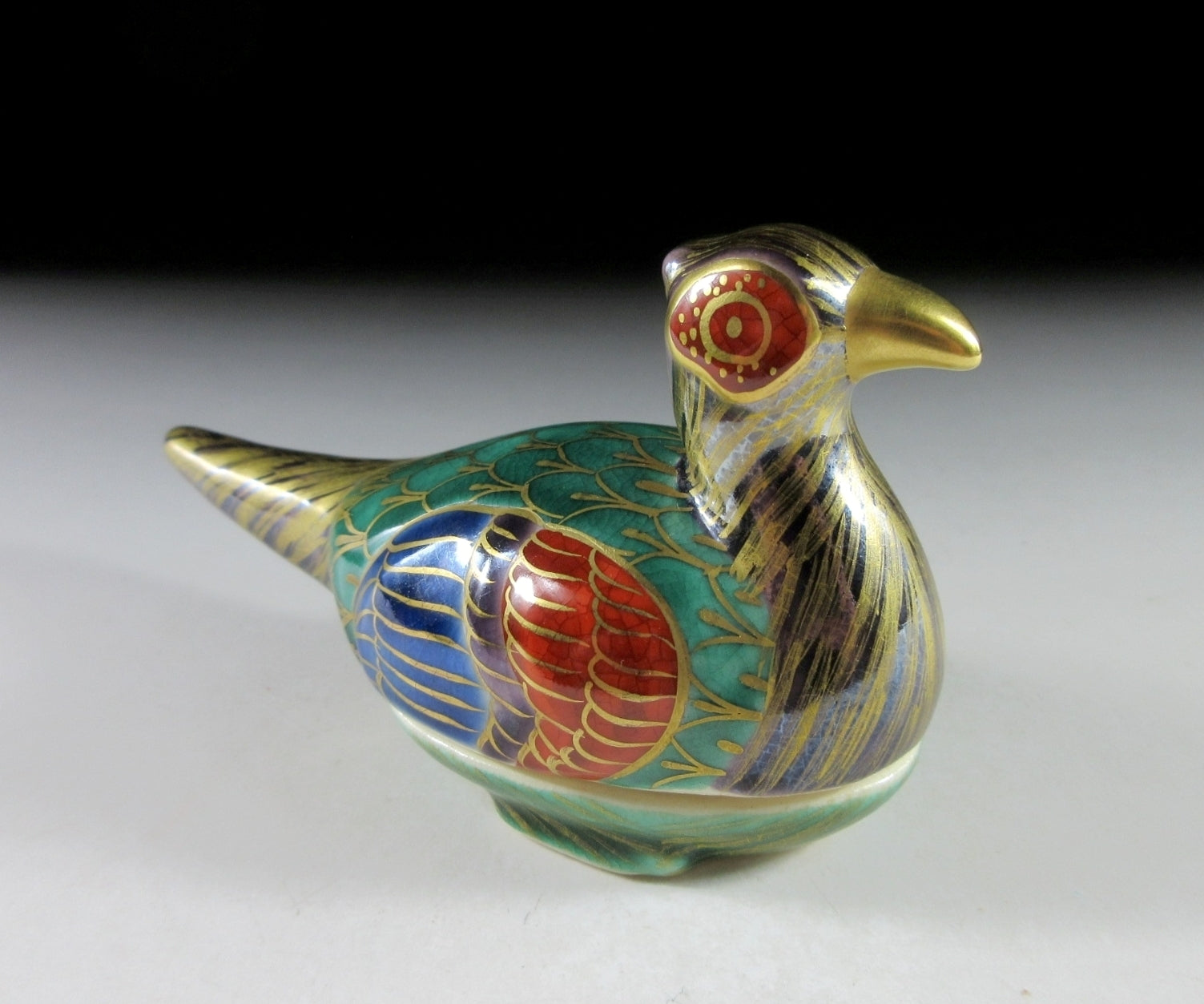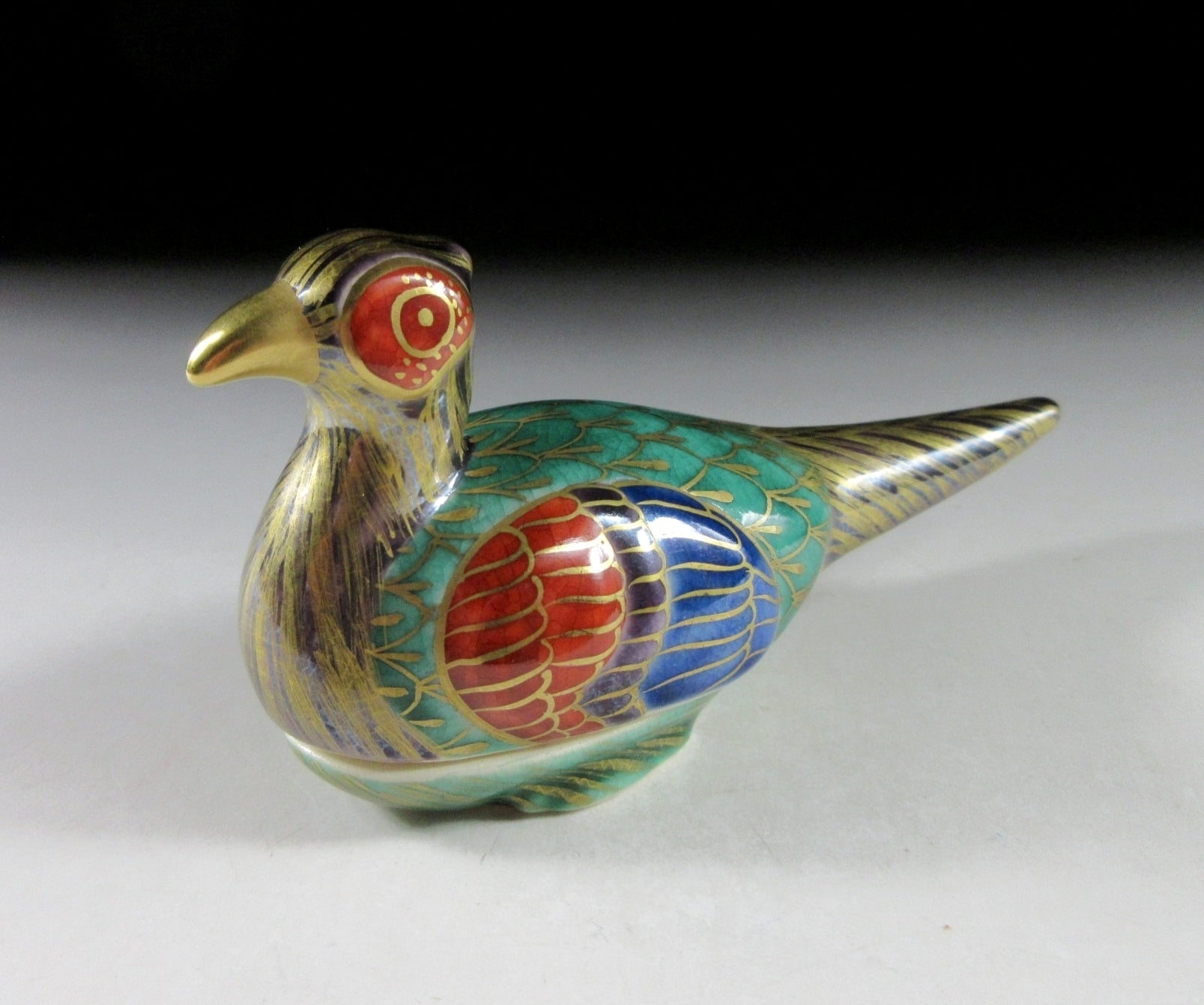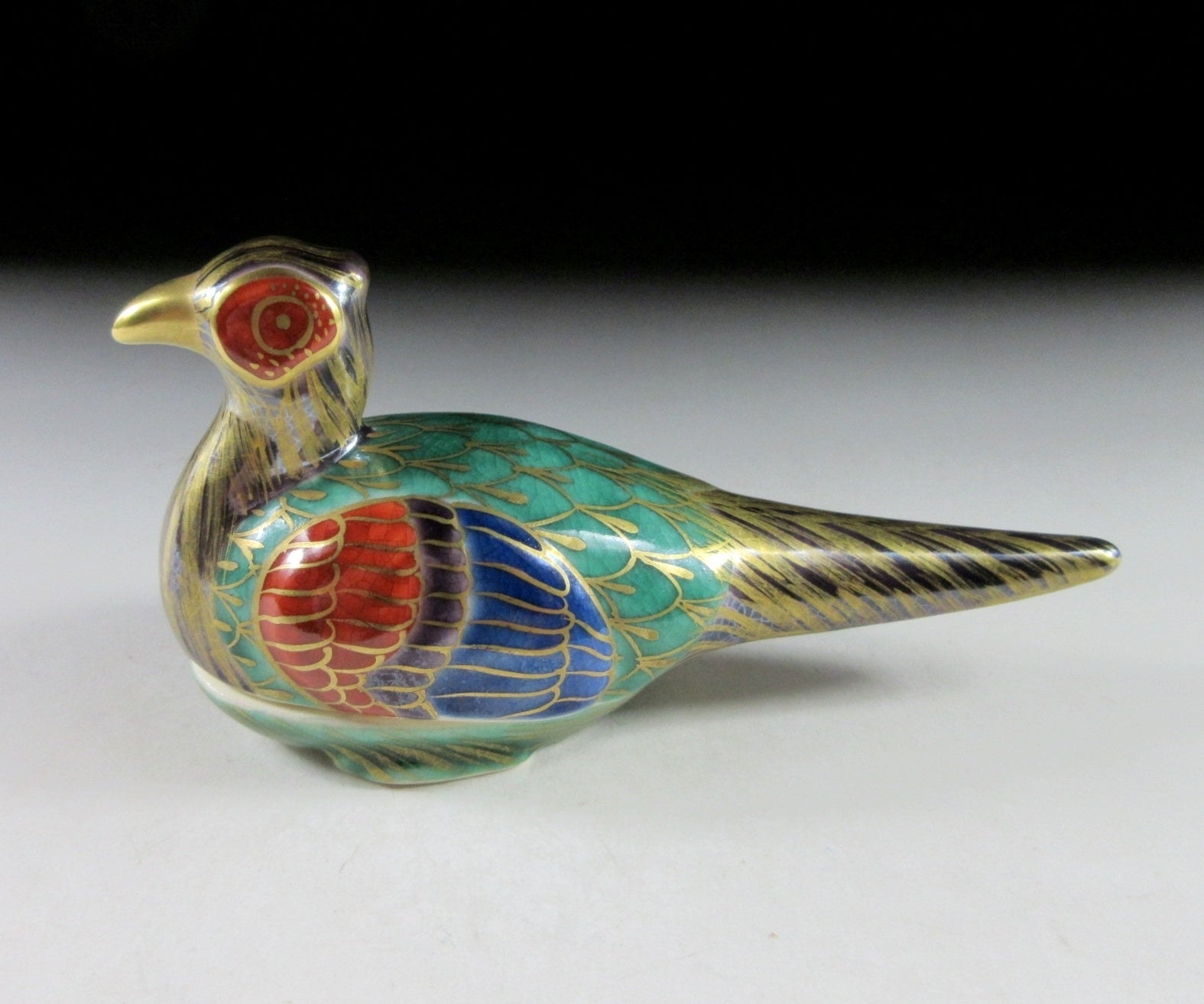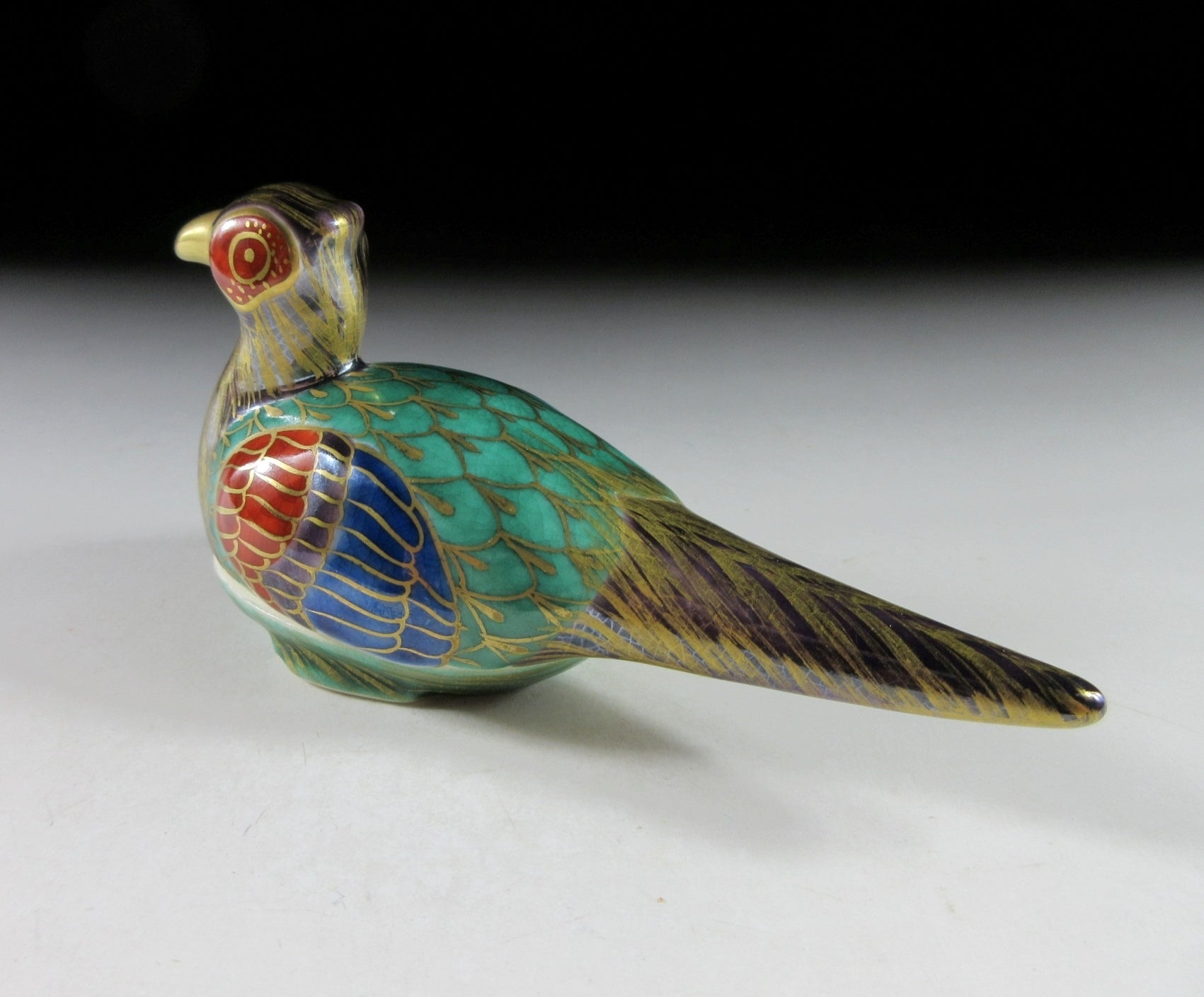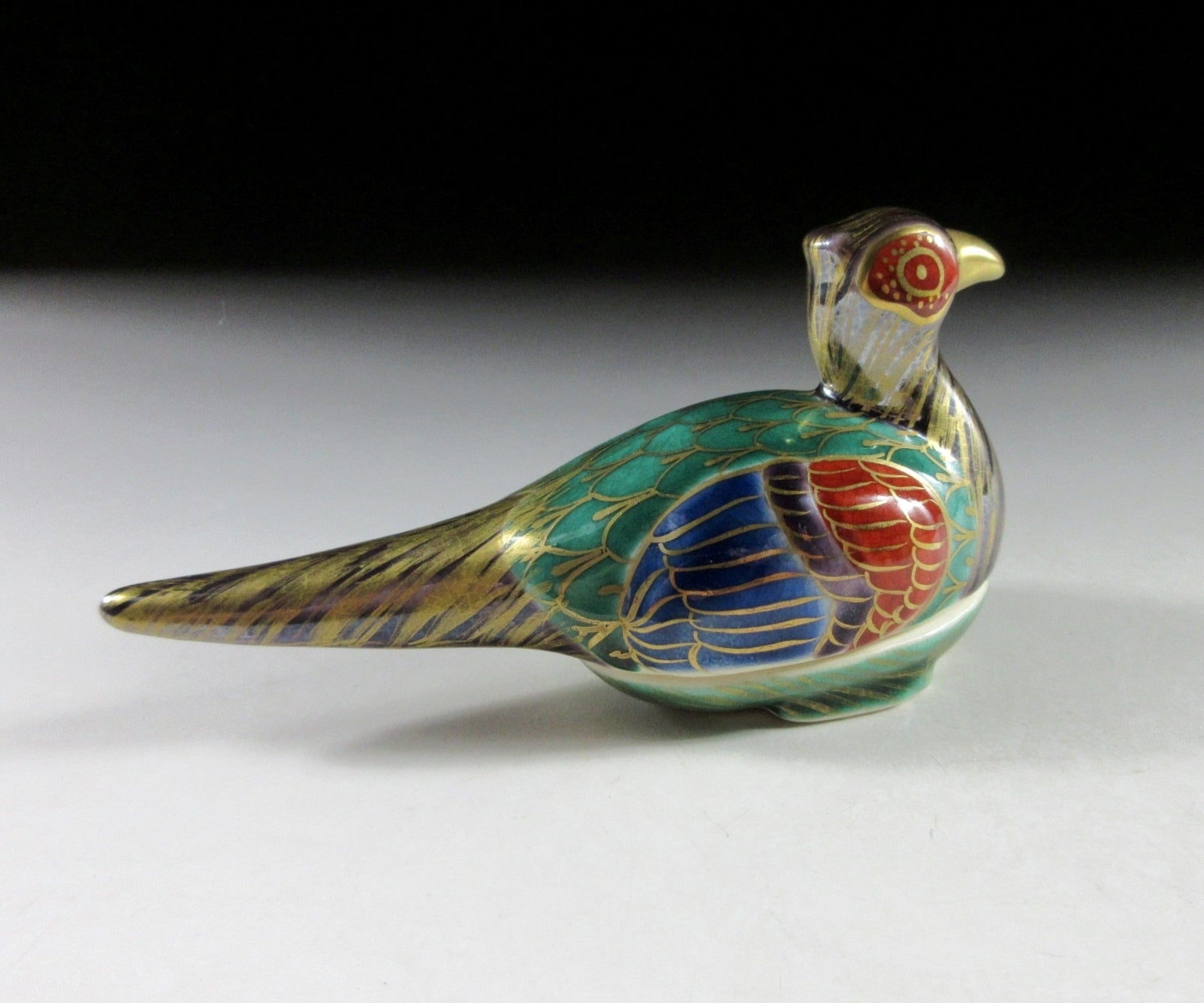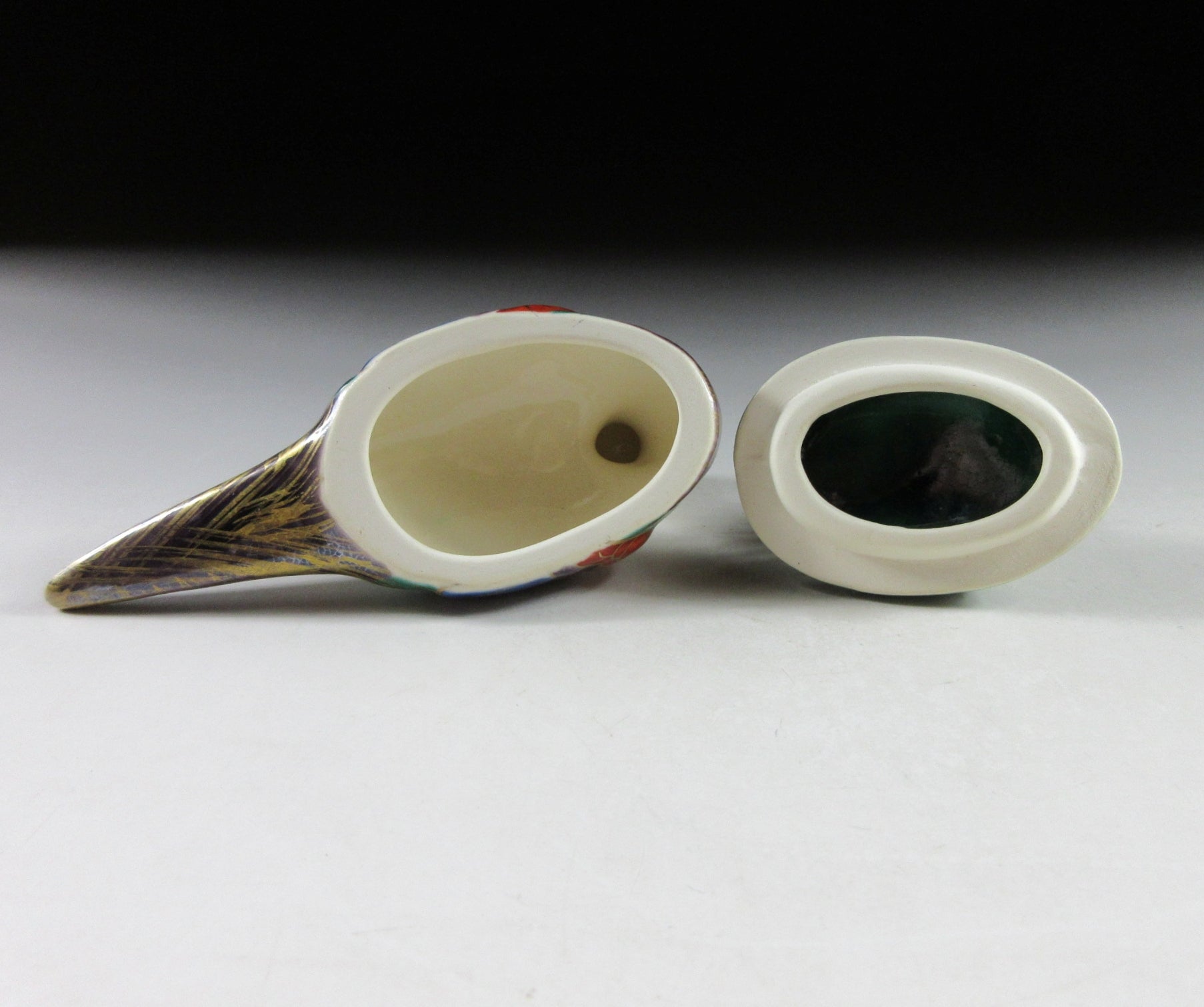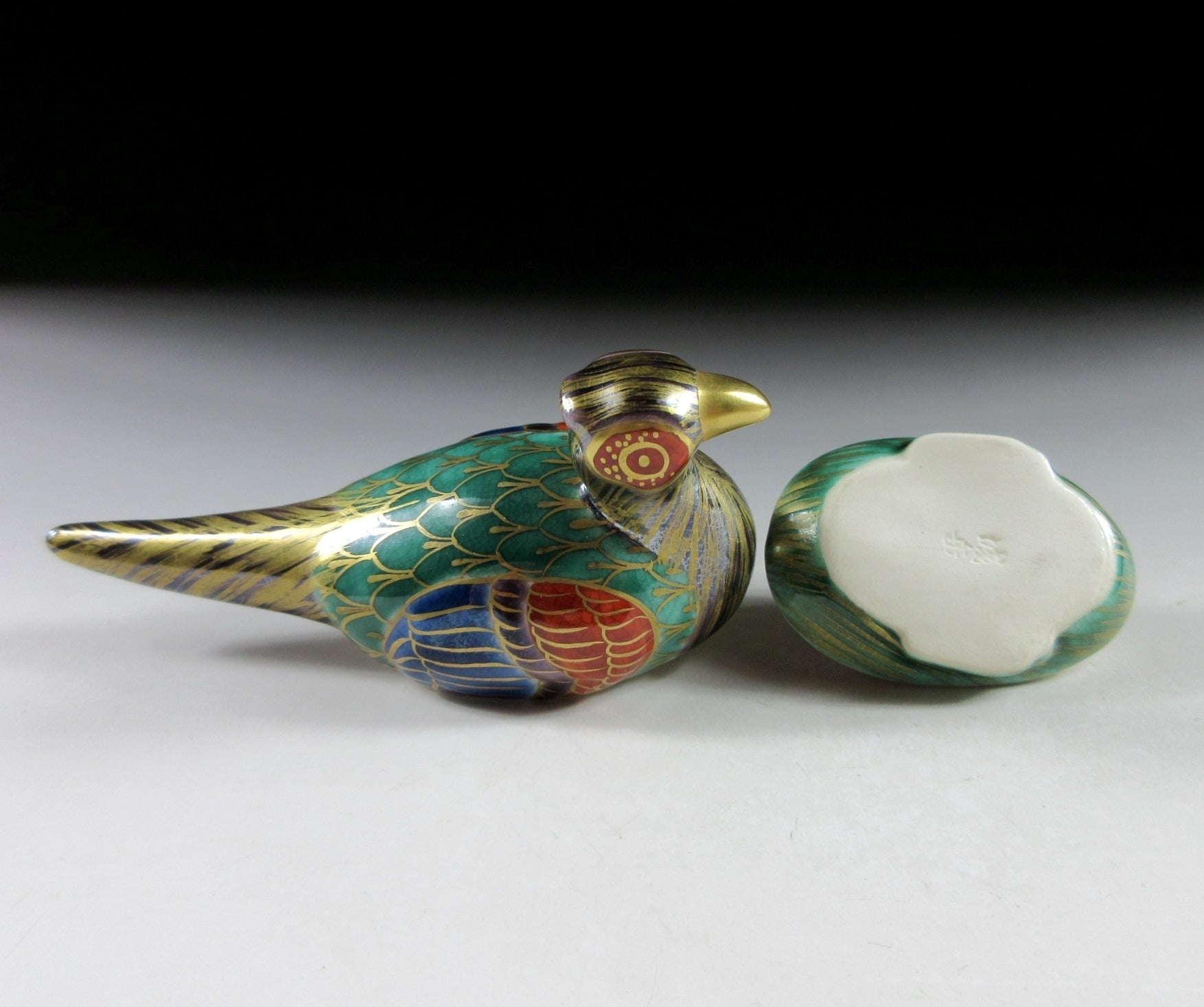Kominka Zakka
Hashimoto Jogaku Pheasant Kogo
Hashimoto Jogaku Pheasant Kogo
Couldn't load pickup availability
*SHIPPING OPTIONS VARY DEPENDING ON THE DESTINATION, PLEASE SCROLL TO THE END OF THIS LISTING FOR MORE DETAILS.
This listing is for a superb Kyo-ware kogo made around 30 years ago by noted potter, Hashimoto Jogaku. It is moulded to resemble a pheasant and the exterior is hand-painted with vivid colour and gold enamel. Pheasants are believed to be messengers of the Shinto sun deity Amaterasu. Amaterasu was the ruler of the heavens, and she’s generally regarded as an ancestor of the imperial family. For this reason pheasants have become a symbol of masculine might and courage. This piece is suitable for holding both woodchip and kneaded incense, although pottery kogo are typically used for kneaded incense during the cooler months. The signature of the potter can be found on the bottom, and it comes with its original wooden storage box.
Hashimoto Jogaku (1907-2003) was a Kyo-ware potter and first generation master of Narutaki Gama. Narutaki Gama was established in 1955, two years later he moved to the Gojozaka area and established a new kiln there. Jogaku was particularly well known for his splendid Ninsei-Kenzan style brushwork, and this skill was passed onto his son, noted potter Hashimoto Shiun. Shiun succeeded the family kiln in 2003 after Jogaku passed away. **Fellow sellers, this information was researched by Kominka Zakka and CANNOT be used in your own listings.
Kogo are for holding incense during the tea ceremony. Kogo vary depending on the season. In summer wooden kogo are used for holding chips of incense wood, and in winter ceramic kogo are used for holding kneaded incense intended for the hearth. During the tea ceremony, incense is added to the charcoal fire during the charcoal-laying procedure.
Kyo-ware originated in the 17th century in Kyoto and features overglaze enamel pigments on a porcelain base. The porcelain base acts as white canvas, allowing for beautiful and superior quality designs to be painted. Kyo-ware artisans traditionally produced chawan and utensils for the tea ceremony, however contemporary potters specialize in tableware, tea ceremony items, incense holders, and okimono. Kyo-ware was designated as a traditional craft in 1977.
Sizes
Box: H.7.4cm (2.9”) x 12.9cm (5”) x 6.1cm (2.4”)
Kogo: H.5.1cm (2”) x L.10.5cm (4.1”) x W.3.9cm (1.5”)
Condition
It’s in very good condition with no chips or cracks.
THESE ARE SHIPPING ESTIMATES BASED ON THE CURRENT GLOBAL SITUATION
**Germany, France, Greece, Spain, Poland, Austria, Slovakia, Lithuania, Slovenia: NO SHIPPING. Very strict and expensive packaging laws in place and we are not licensed to send products to these countries. We have no plan to register at this time because the process is in some cases very expensive and complicated, plus each country has its own set of regulations and application process.
**USA, UK, Canada, Australia, New Zealand, Switzerland, Norway: Airmail Small Packet (approx. 15-28 days). Combined shipping available up to 2kgs for Airmail Small Packet (please send us a message).
**Asia: Airmail Small Packet (approx. 15-21 days). Combined shipping available up to 2kgs for Airmail Small Packet (please send us a message).
**Central Asia, Middle East, South Africa, Brazil, Mexico: EMS Express 10-15 days.
**Russia: No shipping methods available.
Share
